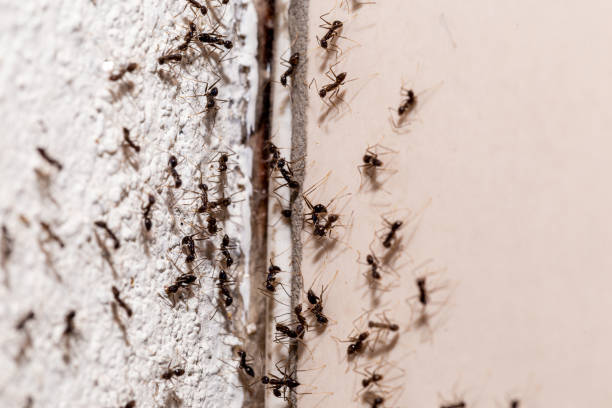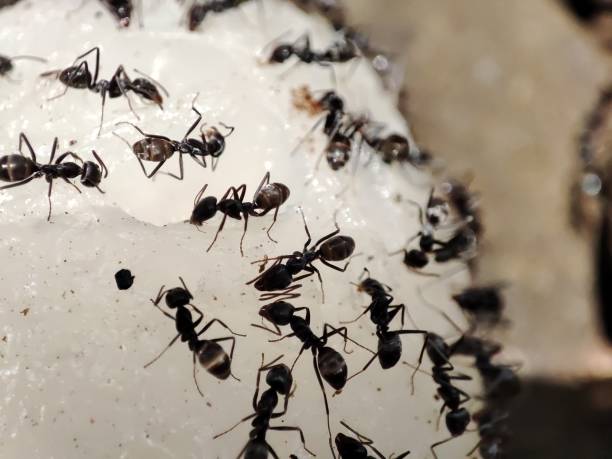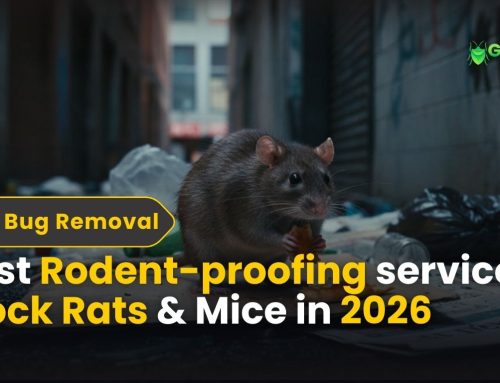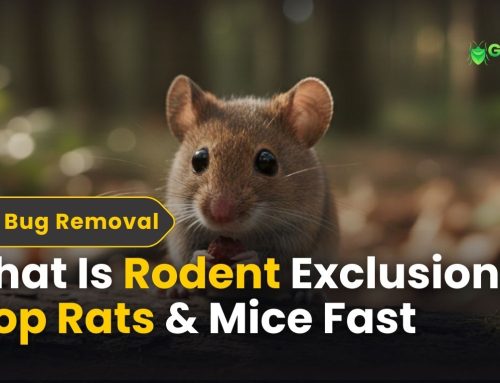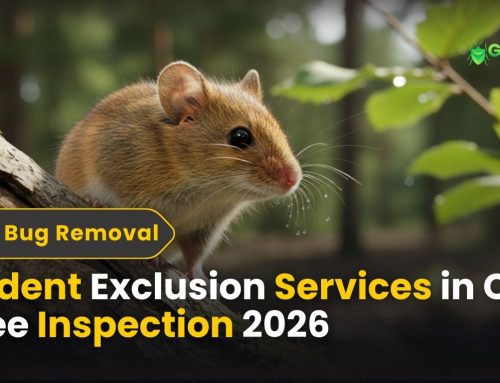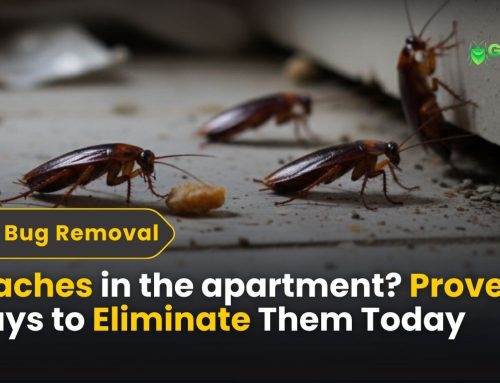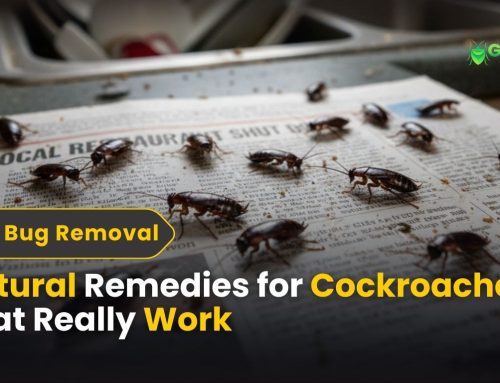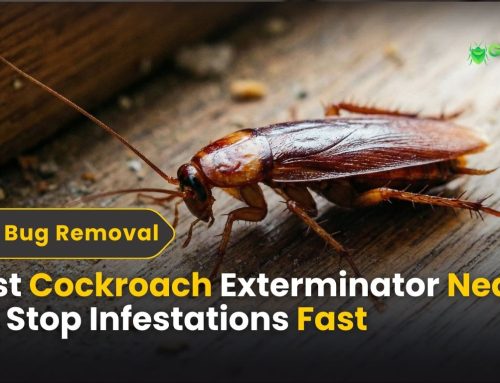Ant Pest Control Cost Guide: What to Expect and How to Save In 2025
Ant infestations are a common issue in households and businesses. While ants play a natural role in the environment, they can become a nuisance when they invade your home. Whether it’s a few ants or a large colony in your kitchen, managing an infestation often requires professional pest control services.
The cost of pest control for ants can vary depending on factors such as the type of ants, the size of the infestation, and the treatment methods used. In this article, we’ll examine these cost factors, explore different treatment options available, and provide insights on what you can expect from a pest control service. Understanding these aspects will help you make an informed decision when dealing with an ant problem in your home.
1. Understanding the Basics of The Ant Problem
Before diving into the cost of pest control, it’s essential to understand why ants are such a problem. The most common ants found in homes are:
- Carpenter ants: These ants can cause significant damage to wooden structures as they nest inside wood.
- Odorous house ants: Known for the distinct smell they release when crushed, these ants are drawn to food sources and can become a nuisance in the kitchen.
- Pavement ants: Often found outdoors, these ants can also enter homes in search of food.
- Fire ants: Known for their painful stings, fire ants pose a more serious threat and require specialized control.
Ants can invade your home for various reasons, including food sources, water, and shelter. While some infestations may be manageable with DIY solutions, others require the expertise of professional pest control services to eradicate them.
2. Factors Affecting the Cost of Ant Pest Control
The cost of pest control for ants can vary based on several factors. Understanding these factors will help you estimate the potential cost of your treatment.
a) Type of Ant
The species of ant can play a significant role in determining the cost of pest control. Some ants, like fire ants or carpenter ants, may require more specialized treatments or more extensive extermination efforts, which can raise the cost. For instance, carpenter ants may require the treatment of structural wood, which often requires more time and expertise.
b) Size of the Infestation
The severity of the infestation is another major cost determinant. If ants are found only in one area, like the kitchen, the cost of extermination may be lower. However, if the infestation has spread throughout the house or to multiple areas, it may take longer to treat and require more resources, leading to a higher cost.
c) Type of Treatment
There are various treatment methods for ant control, ranging from chemical pesticides to eco-friendly, non-toxic options. The method used will impact the cost:
- Chemical Treatments: Pesticides are the most common method for treating ant infestations. They can be applied indoors or outdoors and are generally more affordable.
- Baiting Systems: Baiting involves placing poison in areas where ants are active, and it’s generally effective in targeting the colony. This method may cost a bit more due to the materials and time required for the setup.
- Eco-Friendly Treatments: Non-toxic, eco-friendly pest control treatments can be more expensive, as they require more specialized products and techniques to ensure effectiveness without harming the environment.
- Fumigation: This is a more extensive and expensive treatment method, typically used for larger infestations or specific types of ants like carpenter ants.
d) Location
The location of your home also influences the price of pest control services. Costs may be higher in urban areas or regions where pest control services are in high demand. On the other hand, rural areas might have fewer pest control companies, which can either lower or raise prices depending on local competition.
e) Frequency of Treatments
Some pest control companies offer one-time services, while others provide ongoing treatment plans. A one-time treatment might cost less upfront, but if the problem is persistent, you might need several follow-up treatments. Ongoing treatments might save you money in the long run but can add up over time.
3. Average Costs of Ant Pest Control
On average, homeowners can expect to pay the following for ant control:
- One-Time Treatment: For a standard ant problem, a one-time treatment may cost between $150 and $500, depending on the size and severity of the infestation. This typically includes an initial inspection, treatment application, and a follow-up visit.
- Monthly or Quarterly Treatments: If you opt for ongoing service, expect to pay between $40 and $70 per month for regular visits. Some companies may offer discounts for quarterly services, which could range from $100 to $300 per quarter.
- Baiting Systems: Baiting systems are usually included in the initial cost of service, but if you purchase them separately, they may range from $30 to $80 for a set of baits, depending on the type and brand.
- Fumigation: For more severe infestations, fumigation or heat treatment may be necessary, costing between $1,000 and $2,500, depending on the size of your home and the complexity of the infestation.
4. DIY vs. Professional Pest Control
While DIY treatments for ants are available at most hardware stores, they are often less effective than professional services. DIY methods like sprays, baits, and traps might provide temporary relief but often fail to address the root cause of the infestation. Professionals have access to more powerful treatments and can help identify the source of the problem, ensuring a long-term solution.
Some DIY methods include:
- Ant Baits: Ant bait traps can cost between $5 and $20 and are effective for minor infestations.
- Sprays: Ant control sprays can cost $5 to $30, but they often require repeated applications and may not eliminate the entire colony.
- Essential Oils: Natural remedies like peppermint or tea tree oil may work for minor ant problems but are generally not as effective as professional treatments.
If you have a severe infestation or are unsure of the best treatment, it’s wise to consult a pest control expert.
5. How to Choose the Right Ant Control Service
When selecting a pest control service, consider the following tips this will definitely help you a lot to manage the ants control services:
a) Reputation
Look for a company with a good reputation and positive customer reviews. Word of mouth can be a helpful guide when choosing a pest control service, especially if you’re dealing with a persistent issue.
b) Experience
Choose a company with experience in handling ant infestations, particularly the species you’re dealing with. Some companies may specialize in certain types of ants, like carpenter ants, and will have the necessary expertise to manage the problem effectively.
c) Service Guarantee
A reputable company should offer a satisfaction guarantee, meaning they’ll return and retreat the area if ants return after treatment.
d) Licensing and Certification
Make sure the pest control company is licensed and certified by your local regulatory body. This ensures that they follow the necessary safety protocols and use approved chemicals.
6. Preventing Future Ant Infestations
While pest control services can effectively remove ants, preventing future infestations is essential for long-term peace of mind. Here are some preventative measures you can take:
- Seal Entry Points: Ensure that doors, windows, and cracks in the walls are properly sealed to prevent ants from entering your home.
- Clean Regularly: Keep food and waste sealed and clean up crumbs or spills immediately. Ants are often attracted to food sources.
- Remove Nesting Areas: Trim plants and bushes near your home that might be used as nesting sites.
- Store Food Properly: Use airtight containers for food storage and avoid leaving pet food or sugary snacks out in the open.
By maintaining a clean environment and sealing possible entry points, you can reduce the likelihood of a future ant infestation.
Conclusion
Pest control for ants can range from a simple task to a more complex one, depending on the severity and type of infestation. The cost of treatment will vary based on several factors, including the extent of the infestation, the specific species of ants, and the treatment method used. While DIY methods like sprays and baits may offer short-term relief, they often fail to address the root cause of the problem. Professional pest control services, on the other hand, provide more effective and long-lasting solutions.
To ensure the best outcome, it’s important to select a reputable pest control company with experience in handling different types of ant infestations. Look for a service that is licensed, uses eco-friendly methods, and provides a satisfaction guarantee. Professional exterminators experts can also help identify and eliminate hidden nests, which is crucial for eliminating the problem completely.
Additionally, consider investing in preventative measures to keep ants from returning. This could include sealing entry points, cleaning up food sources, and maintaining a well-sealed environment. By acting quickly and choosing the right service, you can prevent an ant infestation from taking over your home.

